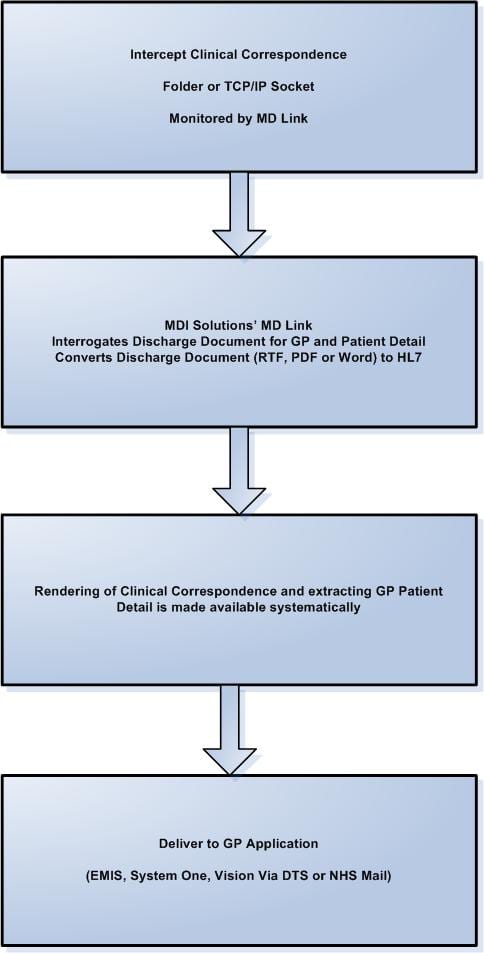MDI Solutions provides a Pre-Processing Service for Clinical Correspondence in the NHS
It extends existing workflow to distribute Discharge Letters that are currently produced as presentation documents like Word, PDFs and RTFs.
This service supports the treating hospital that is required to issue discharge correspondence to a GP. It is all configurable by the hospital’s IT Department and does not require installation of software at each GP office, saving time and reducing complexity to roll out the service and to make on–going changes.
Existing correspondence is produced as a template and some of the template’s essential data elements vary per hospital and the needs of the GP. Examples data elements include: GP Name, GP National Code, Patient NHS Number & Patient Date of Birth. This data set allows the GP to quickly determine if the correspondence is truly one of their patients.
The MDI Pre-Processing service deploys MD Link middleware that monitors network folders and TCP IP Sockets of existing patient administration systems (McKesson Total Care, iSOFT iPM, Meditech, Cerner and others) at the hospital or trust, which produce the Discharge Letters, and MD Link converts these documents to HL7.
For example, a Word Discharge Letter is placed in a Network Folder and electronically processed by MD Link, versus Printing and Posting or sending via e-mail as an attachment or relying on scanning solution at the GP Practice. This Service can also use NHS Mail – MD Link will interrogate key details in the Discharge Document and perform a look up and route to the GP via NHS Mail.
